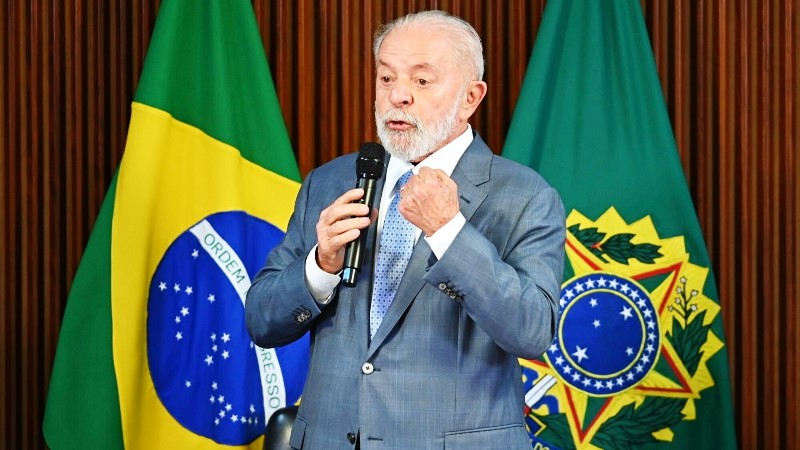Brazilian President Luiz Inácio Lula da Silva stated he will pursue diplomatic negotiations to avert U.S. President Donald Trump’s proposed 50% tariffs on Brazilian exports but warned of reciprocal measures if the duties take effect August 1. In an interview with Record TV, Lula invoked a newly passed law empowering Brazil to retaliate against trade barriers, declaring, “If they charge us 50, we’ll charge them 50.” A Brazilian diplomat, speaking anonymously, indicated that retaliation would only follow formal U.S. action, noting, “We have until August 1.” The looming trade clash stems from Trump’s assertion that Brazil’s legal proceedings against former President Jair Bolsonaro—who faces coup-plotting charges—constitute a “witch hunt.”
Trump linked the tariffs to Bolsonaro’s prosecution in a letter to Lula, reigniting tensions between the two nations. Lula dismissed Bolsonaro’s claims of political persecution and criticized his son, Eduardo Bolsonaro, for lobbying Trump in the U.S. to defend his father. “The former president should take responsibility,” Lula said, accusing the Bolsonaro family of encouraging Trump’s punitive trade move. The Brazilian government is forming a committee with business leaders to reassess trade policy toward the U.S., signaling a strategic shift amid escalating friction.
Brazil’s reciprocity law, enacted in April after Trump’s initial tariff threats, grants Lula broad authority to counter U.S. measures—not just with matching tariffs but also import restrictions, investment curbs, and even suspensions of U.S. intellectual property rights. While the U.S. is Brazil’s second-largest trading partner (after China) and maintains a rare trade surplus with the country, targeted sectors like aviation and banking have already felt pressure. Analysts suggest the broader economic impact may be limited, but the confrontation risks disrupting long-standing bilateral trade dynamics.
Lula’s dual approach—prioritizing diplomacy while preparing for retaliation—reflects Brazil’s delicate balancing act in defending its economic interests without severing critical ties. The dispute underscores how domestic political tensions, like Bolsonaro’s legal troubles, can spill into international trade policy. With the August 1 deadline looming, both nations face a pivotal test of whether pragmatic negotiations can prevail over escalating tit-for-tat measures. The outcome could redefine not just U.S.-Brazil relations but also set a precedent for how democracies navigate trade conflicts intertwined with political grievances.














